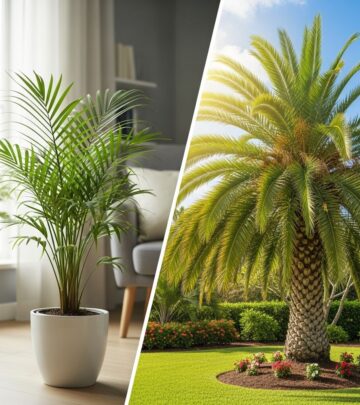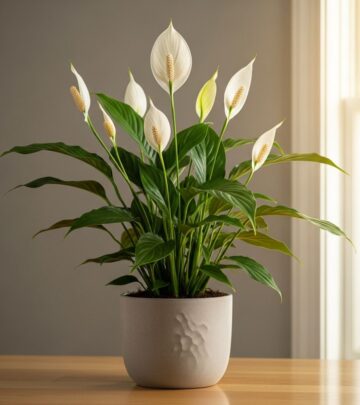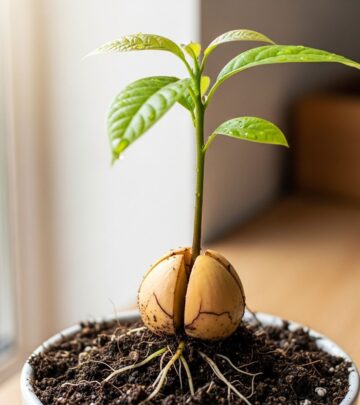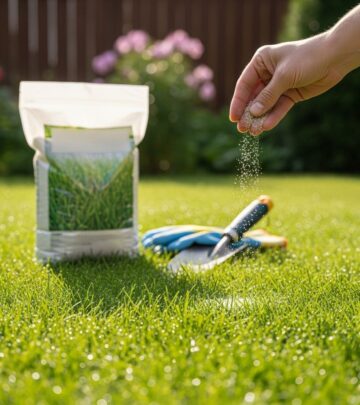11 Bright Yellow Magnolia Tree Varieties: Sunshine in Bloom
Seasonal care strategies and pruning techniques promise vibrant blossoms year after year.
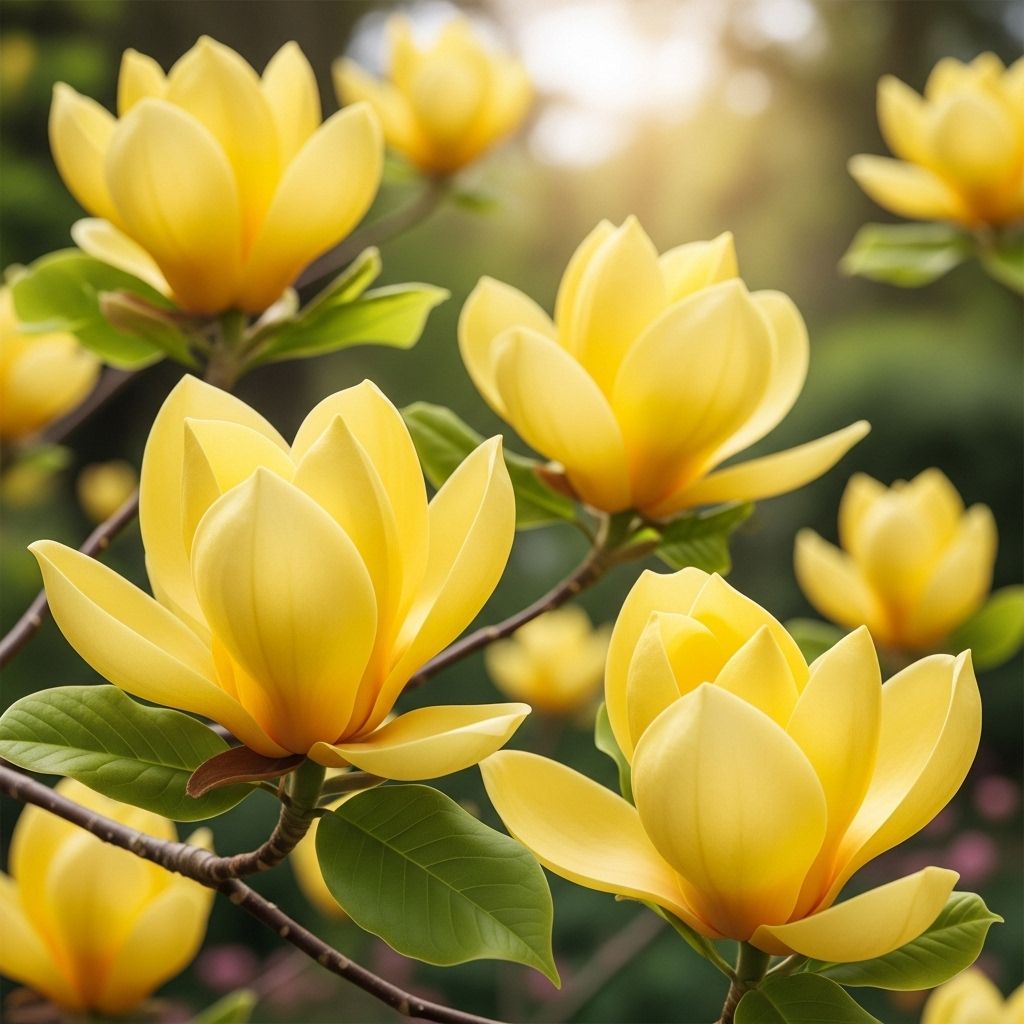
Yellow magnolias bring rare, luminous charm to spring gardens. Their buttery or golden blooms signal warmer days, providing a radiant contrast to the traditional pinks and whites. In this guide, discover 11 of the most dazzling yellow magnolia varieties—each one a potential highlight for your landscape—along with expert advice on cultivation, care, and selection.
Why Choose Yellow Magnolias?
Yellow is a color often associated with happiness, optimism, and warmth. Yellow magnolia trees channel these qualities at the close of winter, offering uplifting displays when the garden needs them most. Years of deliberate hybridization—especially by renowned institutions like the Brooklyn Botanic Garden—have resulted in captivating, cold-hardy varieties suitable for a wide range of gardens.
- Shades range from soft primrose to intense lemon-yellow hues
- Late winter or early spring bloomers; some even flower into late spring
- Cold-hardy hybrids are now available for diverse climates
- Many serve as long-lasting cut flowers and offer seasonal foliage interest
Table: Quick Comparison of Yellow Magnolia Varieties
| Name | Bloom Color | Bloom Time | Height | Notable Traits |
|---|---|---|---|---|
| ‘Elizabeth’ | Pale primrose yellow | Mid-spring | 30-50 ft | Fragrant, abundant flowers |
| ‘Butterflies’ | Clear canary yellow | Early spring | 20-30 ft | Upright, cup-shaped blooms |
| ‘Yellow Bird’ | Lemony yellow | Late spring | 40 ft | Chalice blooms, fall foliage |
| ‘Golden Gift’ | Golden yellow | Early to mid-spring | 13 ft | Dwarf, compact habit |
| ‘Solar Flair’ | Vivid golden yellow | Early spring | 20-25 ft | Japanese parentage; late frost tolerant |
| ‘Gold Star’ | Pale to deep yellow | Mid-spring | 15-20 ft | Star-shaped flowers |
| ‘Daphne’ | Clear yellow | Late April | 20-30 ft | Broad, upright form |
| ‘Lois’ | Butter yellow | Mid-spring | 30 ft | Large, fragrant blossoms |
| ‘Sunburst’ | Bright yellow | Mid – late spring | 20 ft | Very floriferous, compact |
| ‘Honey Tulip’ | Golden yellow | Early spring | 15-20 ft | Unusual tulip shape |
| ‘Sunsation’ | Gold with rose base | Late spring | 20-25 ft | Multicolored blooms |
Introducing the Best Yellow Magnolia Varieties
1. Magnolia ‘Elizabeth’
‘Elizabeth’ is a classic pale yellow magnolia, born from the breeding programs at the Brooklyn Botanic Garden. Its chalice-shaped, creamy primrose blooms appear in mid-spring before the foliage emerges, exuding a light fragrance. This upright-growing tree can reach 30 to 50 feet at maturity, making it an ideal feature tree.
- Blooms: Pale yellow, fragrant, elegant
- Growth: Fast-growing, upright
- Zone: 5-9
2. Magnolia ‘Butterflies’
‘Butterflies’ offers a profusion of upright, canary-yellow blooms in early spring. Each goblet-shaped flower features up to 15 tepals that remain vibrant for weeks. The tree’s modest size (20–30 feet) suits medium gardens and lawns, providing cheerful color before most other plants awaken.
- Blooms: Clear yellow, cup-shaped
- Growth: Rounded crown, moderate height
- Zone: 5–8
3. Magnolia ‘Yellow Bird’
This standout hybrid derives from M. acuminata and M. x brooklynensis ‘Evamaria.’ ‘Yellow Bird’ bears clusters of deep lemon-yellow, upright blossoms in late spring. Each flower lasts up to 3 weeks, and the foliage turns luminous bronze-gold in fall for multi-season appeal.
- Blooms: Lemon yellow, goblet-shaped, long-lasting
- Growth: Tall, striking, with autumn leaf color
- Zone: 4–9
4. Magnolia ‘Golden Gift’
‘Golden Gift’ is a compact magnolia featuring bright golden blossoms. Its smaller stature (to 13 feet) makes it a top choice for urban gardens, patios, or anywhere space is at a premium. Flowers open in early to mid-spring and are lightly scented.
- Blooms: Golden yellow, chalice form
- Growth: Dwarf, ideal for containers and small yards
- Zone: 5–9
5. Magnolia ‘Solar Flair’
The Japanese heritage of ‘Solar Flair’ contributes to its robust golden-yellow flowers, opening just after the last spring frost. The 6-8 inch flowers almost glow against the bare branches. Medium size (to 25 feet at maturity) and tolerance to late frosts make it prized in colder regions.
- Blooms: Vivid yellow, large, slightly fragrant
- Growth: Upright, vigorous shrub or small tree
- Zone: 5–9
6. Magnolia ‘Gold Star’
A cross between M. acuminata and M. stellata, ‘Gold Star’ boasts starry, creamy yellow flowers with pointed tepals. Outstanding for mid-spring bloom after the risk of frost, it matures to an approachable 15–20 feet height, suiting smaller landscapes.
- Blooms: Star-like, pale to gold yellow
- Growth: Bushy, compact layout
- Zone: 5–9
7. Magnolia ‘Daphne’
‘Daphne’ produces masses of clear yellow flowers across April and May. With a broad, upright tendency, the tree typically achieves 20 to 30 feet, making it an excellent specimen tree.
- Blooms: Soft yellow, lush, upright display
- Growth: Spreading, strong-structured
- Zone: 5–9
8. Magnolia ‘Lois’
With stunning butter-yellow blossoms, ‘Lois’ adds grandeur to any landscape. It is a medium-to-large tree, often reaching 30 feet, and offers large, lightly scented blooms in mid-spring with good cold tolerance.
- Blooms: Vibrant yellow, 10-12 tepals each
- Growth: Upright, full-bodied appearance
- Zone: 5–9
9. Magnolia ‘Sunburst’
The ‘Sunburst’ variety earns its name through showers of brilliant yellow, slender-petaled flowers in mid to late spring. Both compact and intensely floriferous, it’s prized for smaller gardens or urban settings.
- Blooms: Bright yellow, starburst form
- Growth: Medium height, bushy
- Zone: 5–9
10. Magnolia ‘Honey Tulip’
Fans of dramatic form should consider ‘Honey Tulip’, whose golden blooms resemble rich, oversized tulips. It is a compact choice (15–20 feet), perfect for accent planting, and flowers early in the season.
- Blooms: Unique, tulip-shaped, golden hue
- Growth: Dense, ideal for privacy or feature
- Zone: 6–9
11. Magnolia ‘Sunsation’
‘Sunsation’ delivers a bold multicolor effect with golden flowers blushed at the base with rose-pink. The blooms appear in profusion in late spring, and the tree’s neat habit (20–25 feet) fits well in most landscapes.
- Blooms: Gold with rose blush, large, dramatic
- Growth: Upright, moderately sized
- Zone: 5–9
Growing Yellow Magnolias: Care & Cultivation
To enjoy vivid yellow magnolias at their finest, use the following care recommendations:
- Site Selection: Choose a location with full sun to partial shade and shelter from strong winds.
- Soil: Moist, fertile, well-drained soil. Magnolias prefer slightly acidic conditions but will adapt to neutral pH if well-drained.
- Water: Provide regular irrigation, especially during dry spells and in the tree’s first few years.
- Mulching: A generous mulch layer conserves moisture and shields shallow roots.
- Pruning: Limited pruning, only to remove dead or crossing branches. Shape when dormant to minimize stress.
- Fertilization: Apply a balanced fertilizer in early spring, especially if soil fertility is low.
Most yellow magnolias are low-maintenance once established, and many are resistant to common diseases. Because they flower on old wood, avoid autumn or winter pruning to preserve next season’s blossoms.
Best Hardiness Zones for Yellow Magnolias
Yellow magnolias represent extensive hybrid breeding for cold tolerance. Many varieties are suitable from USDA zones 5 to 9, but some hybrids like ‘Yellow Bird’ even thrive in Zone 4. Always check the variety’s recommended zone before planting.
- Zone 4: ‘Yellow Bird’
- Zones 5–9: Most other yellow magnolias
- Zones 6–9: ‘Honey Tulip’
Uses and Landscape Placement
Yellow magnolias can serve diverse garden functions:
- Specimen tree: Create a striking focal point in lawns, courtyards, or parks
- Mixed borders: Pair with evergreens and spring bulbs for sustained color
- Urban gardens: Dwarf or compact types suit patios, terraces, and containers
- Wildlife gardens: Attract pollinators and support local biodiversity
Frequently Asked Questions (FAQs)
Q: Are yellow magnolias fragrant?
A: Many yellow magnolia varieties, such as ‘Elizabeth’ and ‘Lois,’ offer a subtle, sweet fragrance, though typically less intense than white or pink magnolias.
Q: When do yellow magnolias bloom?
A: Most yellow magnolias flower in early to mid-spring, although some hybrids like ‘Yellow Bird’ bloom later, often avoiding frost damage.
Q: Can yellow magnolias grow in containers?
A: Compact varieties like ‘Golden Gift’ and ‘Honey Tulip’ can be grown in large containers, provided they receive ample water and nourishment, and the pot is deeply sized for root development.
Q: How cold hardy are yellow magnolia trees?
A: Many yellow magnolias are bred for cold tolerance; ‘Yellow Bird,’ for example, can withstand winter in USDA Zone 4, while others thrive best in Zones 5–9.
Q: Do yellow magnolias retain their color throughout the bloom?
A: Most varieties maintain their yellow hue well, especially ‘Butterflies’ and ‘Gold Star,’ though some blooms may develop a light blush or fade slightly as they age.
Tips for Success with Yellow Magnolia Trees
- Plant in early spring or fall for best establishment.
- Avoid replanting or moving established magnolia trees as they dislike root disturbance.
- Protect young flower buds if late frost threatens, especially in colder regions.
- Enjoy the extended beauty: Some yellow magnolias provide season-long interest with foliage color changes and attractive branching patterns in winter.
Wrap-Up: A Golden Investment for Your Landscape
Yellow magnolia trees combine showstopping spring brilliance with elegance and robustness. Whether you desire a towering specimen or a petite accent, there is a yellow magnolia for nearly every garden. With the proper care and placement, their dazzling blooms will lift your spirits for years to come, proving that sunshine can indeed be planted.
References
- https://www.epicgardening.com/yellow-magnolia-varieties/
- https://www.epicgardening.com/magnolia-trees/
- https://www.gardenia.net/guide/favorite-yellow-flowering-magnolias-for-your-garden
- https://www.pinterest.com/pin/11-bright-yellow-magnolia-tree-varieties–62417144829573419/
- https://ar.pinterest.com/pin/11-different-types-of-bright-yellow-magnolia-tree-varieties-in-2024–269934571409967738/
Read full bio of Sneha Tete


